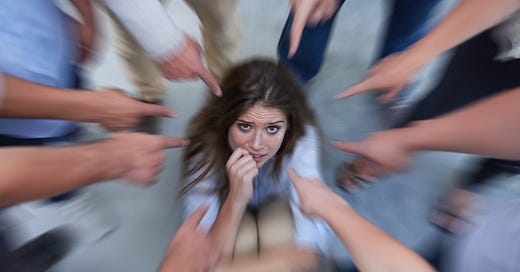In today's TPOM, we will take a look into the concepts of blaming, scapegoating, and the refusal of ownership. Have you ever been blamed for something you didn't do? Most of us have. What goes on that brings about these situations? Where does a person who blames, scapegoats, or refuses ownership have to operate from to cast the blame onto others? Let's investigate and take a journey to the darker side of our behavioral spectrum, coming away with a better understanding of what motivates us to refuse responsibility for our actions and cast the blame onto others.
Blame
Blame - "The action of censuring; expression of disapprobation; imputation of demerit on account of a fault or blemish; reproof; censure; reprehension. A charge, an accusation." OED.
"To consider responsible for a misdeed, failure, or undesirable outcome. To find fault with; criticize. To place responsibility for (something)." The American Heritage Dictionary of the English Language, 5th Edition.
"To find fault with, to hold responsible, to place responsibility for, responsibility for something believed to deserve." Merriam Webster Dictionary.
For the purposes of this essay, we will be treating blaming from the standpoint of its improper assignment.
Scapegoating
Scapegoating - "The action or practice of making a scapegoat of someone; spec. in Psychology, aggressively punitive behaviour directed for whatever reason against other (weaker) persons or groups." OED.
"The process of directing one's anger, frustration, and aggression onto others and targeting them as the source of one's problems and misfortunes." APA Dictionary of Psychology.




